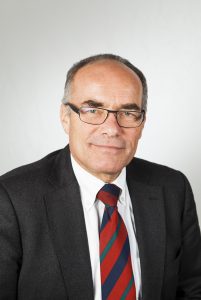Editorial
Just over a year ago Mining Report Glückauf carried out a review of mining engineering studies in Germany, which included examining the conditions and prospects for mining students, the type of courses currently available and the various initiatives and projects being carried out at the mining universities. This latest issue of Mining Report Glückauf will be looking into this subject in greater detail and at the same time will peer over the fence, as it were, to see what others are doing in this field.
The onset of the digital age means a fresh set of challenges for our colleges and universities and today’s mining engineering courses have to take account of this fact. Four examples that have been developed at Clausthal University of Technology provide answers to the question of how curricula and courses for mining students can be structured for the future and successfully implemented. RWTH Aachen University has also devised new concepts for its Bachelor’s and Master’s Degree courses that will focus on teaching sustainable strategies for raw materials and energy and provide a basis for research in these thematic areas. The transfer of international know-how is fundamental for achieving scientific excellence around the world. Georg Agricola University of Applied Sciences (THGA) in Bochum has presented a 7-phase model aimed at ensuring the effectiveness of international knowledge sharing, while at European level the Horizon 2020 INTERMIN project has been set up with a view to creating an international network of technical and vocational training centres for personnel specialising in mineral resources. The importance and practical relevance of this can be demonstrated by fact that the School of Mining Engineering at the University of Witwatersrand in Johannesburg/South Africa, is now collaborating with one of the country’s largest gold mining companies. Admission to a university degree course is of course dependent on having an appropriate school-leaving qualification and in this context a contribution submitted by TU Bergakademie Frei-berg seeks to examine what kind of mining related education is being provided at mainstream schools in Germany.
The German Coal Association (GVSt) has published its Annual Report this year as usual. The 2019 Report presents the main themes and activities associated with the work of the GVSt in this sector over the past twelve months. This issue of Mining Report Glückauf includes a condensed version of the full document.
In September this year the ISSA Mining Section, which acts as the International Working Group on Accident Prevention in the Mining Industry, celebrated its fiftieth anniversary in Pretoria/South Africa, in conjunction with the international OSHAfrica Conference that was being held at the same time in nearby Johannesburg.
Two of the contributions featured in this edition of Mining Report Glückauf have undergone a peer review process and have been highlighted accordingly. As their authors are for the most part non-German speakers the articles in question have been drafted in English and are therefore being published only in their original language.
With my best regards
Dipl.-Ing. Andreas-Peter Sitte
Chief Editor Mining Report Glückauf, Essen
